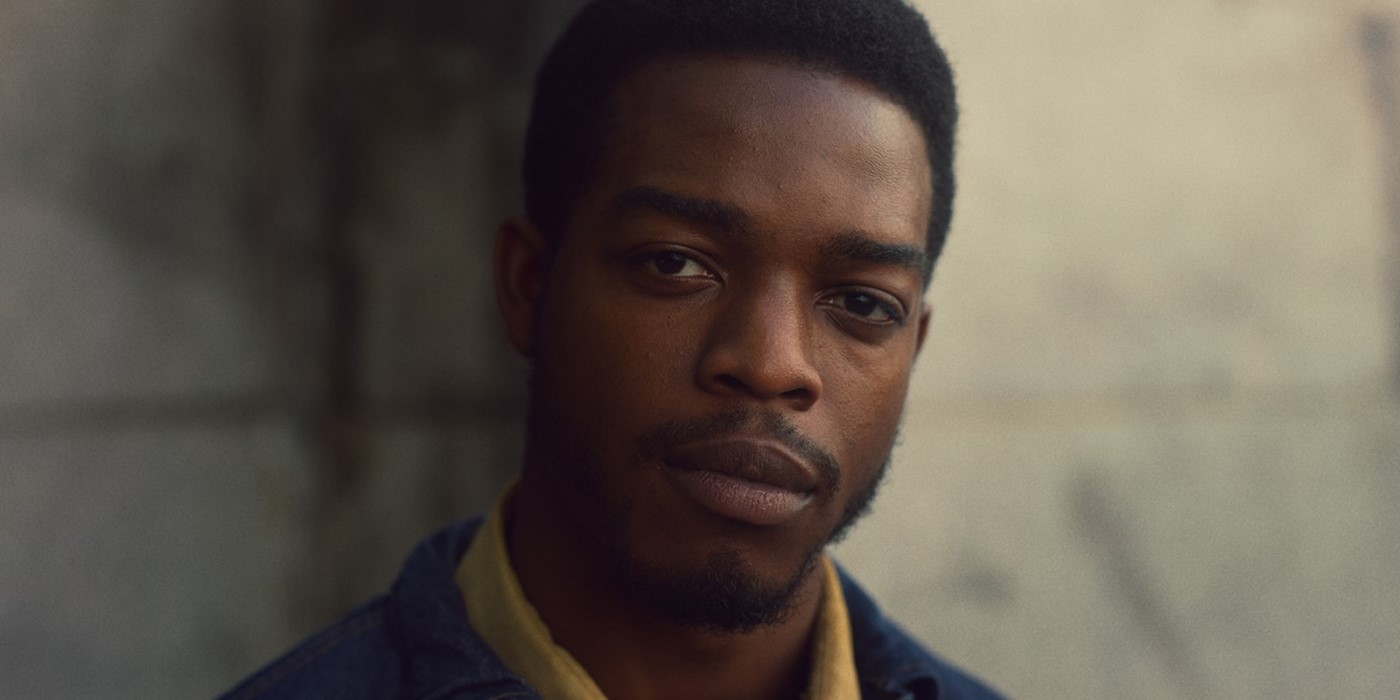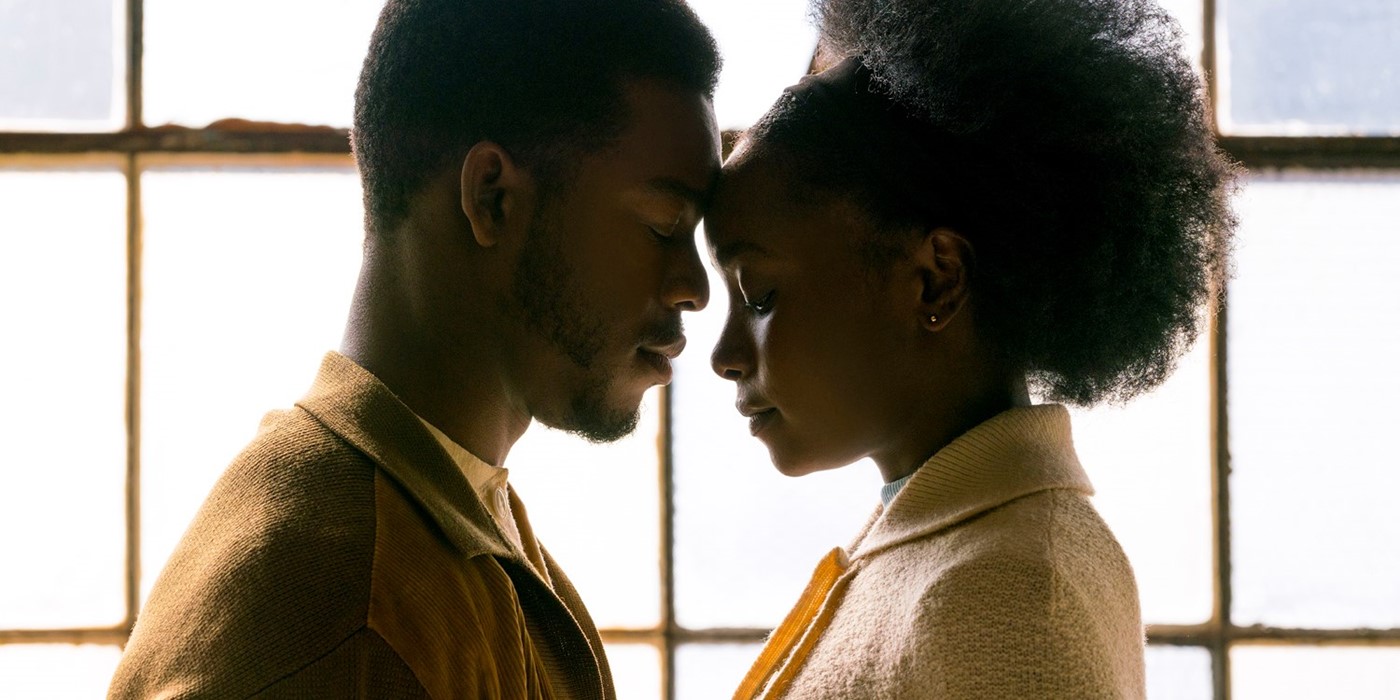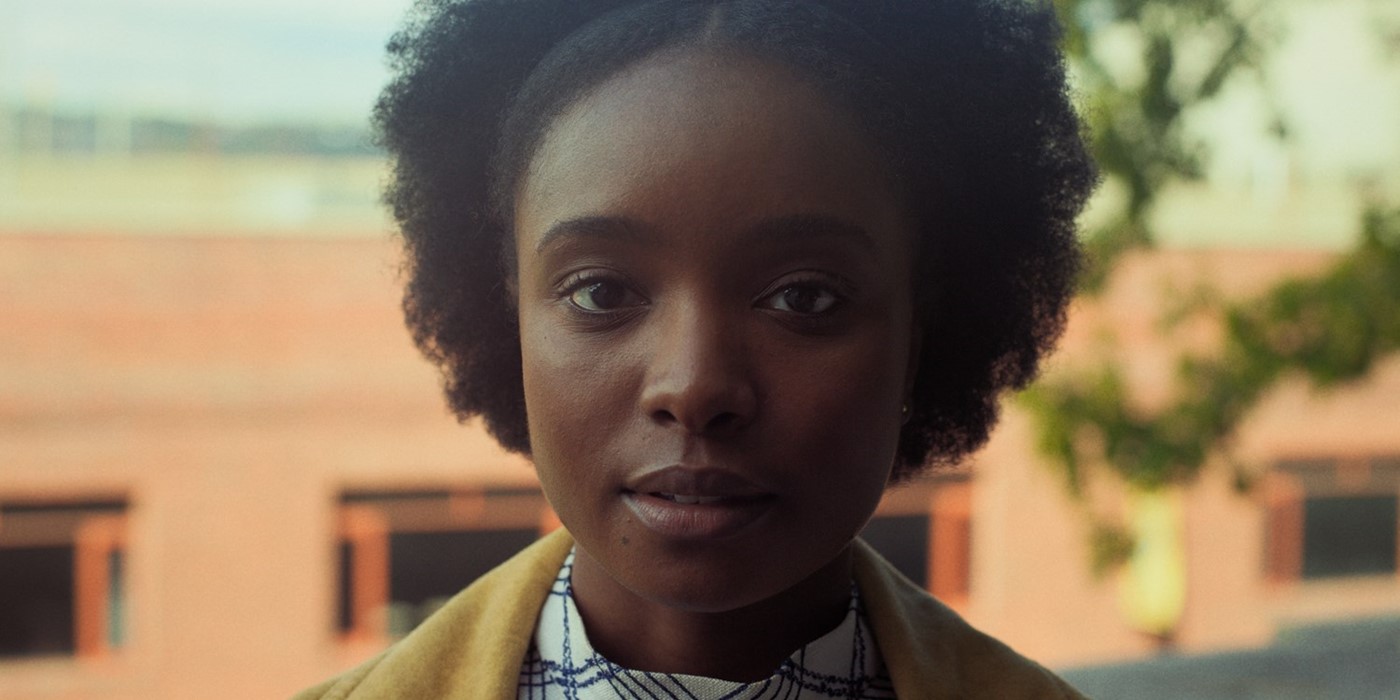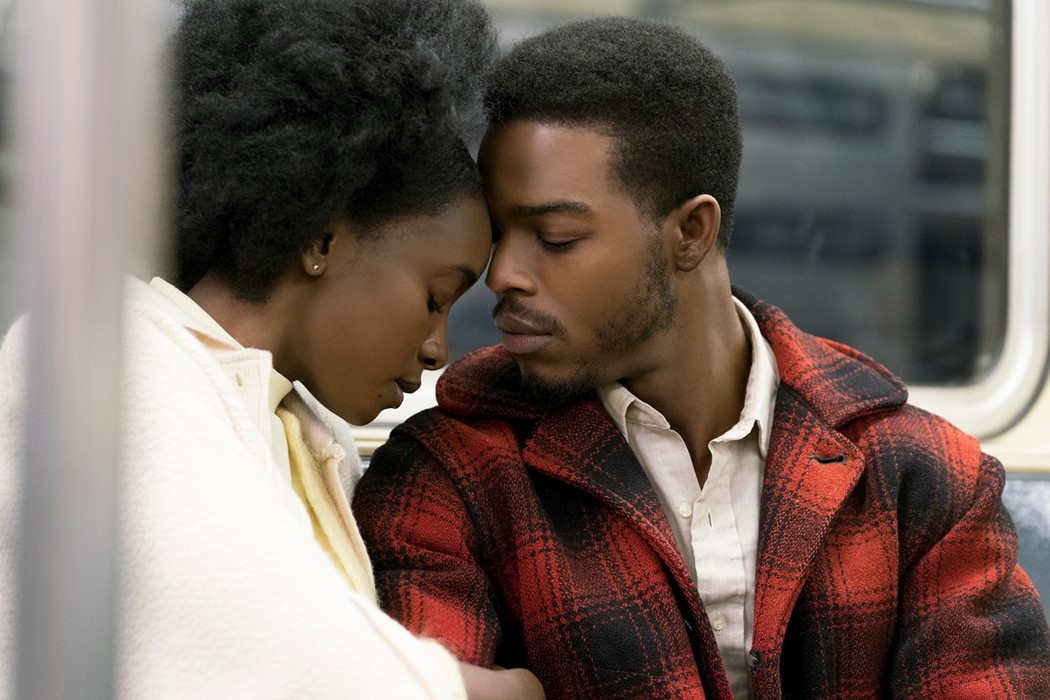Meeting the Star of Barry Jenkins’ New Film, If Beale Street Could Talk
- TextKemi Alemoru
Stephan James speaks to Kemi Alemoru about the film – working with Jenkins, how he relates to his character and the beauty of the story
Barry Jenkins, the Oscar-winning director of Moonlight, is back with a beguiling new romance. If Beale Street Could Talk is a poignant tale based on James Baldwin’s novel of the same name. With its near-operatic score, soft colour palette, and close intimate shots at times it’s akin to a daydream about love, or a distant memory of the first time you felt it. The protagonist Alonzo Rivers, who mostly goes by Fonny, is played by on-the-rise Canadian actor, Stephan James. Speaking to Another Man, he revealed that he’s been thinking a lot about relationships since working on the film. “I’ve learned a little bit about love while making this film,” he says. “Especially black love and how that in itself is a revolutionary act.”
In the face of adversity, specifically the rampant oppression black people experienced in 70s New York, having the type of love that can overcome all forms of hate is vital. The film chronicles Fonny’s life after he falls in love with his childhood friend Tish Rivers at 19. As quickly as the pair unite, their relationship goes through some devastating tests: first, they struggle to find a place to live because of their race. Then, Fonny is arrested by a racist cop with a grudge for a rape he did not commit and, left with no way to prove his innocence, becomes just another black man lost to the system of mass incarceration. As he languishes in prison, Tish discovers that she’s pregnant and brings up the baby alone.

Yet, somehow, through all of this the movie manages to strike an uplifting and almost aspirational tone. Even though you might never want to find yourself in their circumstances, you will want to find someone willing to love you as hard as they love each other. They’re able to overcome any obstacle. “At its core, this is a love story about hope and what both can help you get through,” James explains.
It’s usually misguided to believe that actors are anything like their endearing characters but, by his own admission, James is actually quite like Fonny. Aside from loving to paint and create art like his on-screen counterpart, who is a sculptor, the actor also shares his romanticism: “I think I love pretty deeply like him,” he says. He doesn’t divulge any information about his current relationship status, but he does offer up some more parallels. He’s determined like Fonny, strongly believing that he can achieve anything that he “verbalises into existence”. “I’m very much a spiritual person. I would never keep inside something that I really, really wanted,” he says. “I always manage to tell people and just put it out into the earth in some way.” It’s worked so far – he told everyone he would work with Barry Jenkins and now he has. Next, he wants to buy a property in LA. “I’ll do it because I told myself I’m going to do it. We’ll see it manifest,” he laughs.

At 25, the young actor is being tipped as one to watch having already secured a number of impressive roles: from civil rights-era films like Selma or playing Jesse Owens in Race, to his more recent appearance in Homecoming which earned him a Golden Globe nomination for Best Actor. “When it comes to choosing whether I’m on board it can be the script, the message, or the character. With Homecoming I really enjoyed the podcast, then it had this little actress named Julia Roberts attached, like that might be kind of cool to work with her,” he jokes.
All of this earned him a place as the star in the follow up to Jenkins’ Oscar-winning film Moonlight. “It was a little bit daunting because honestly I’m a big fan of Barry,” says James. While the two projects are both a portrait of what it means to come of age and fall in love while navigating the world as a black man, he’s careful to avoid comparisons. “Barry certainly treated them as two separate projects, so we all followed suit – we didn’t think about the pressure.” Instead, the actor took inspiration from the original novel to channel those raw emotions. James is able to communicate so much with a look, or a subtle change in facial expression thanks to “Baldwin’s words”. “You read the novel in 20 hours, but you watched the film in two hours and so there’s all this information, thoughts and feelings that will never make it into the film, but Barry always said: ‘It’s not going to make it into the film, but it can make it into the performance.’”

While the love story in Moonlight was complicated by the war between hypermasculinity and queerness, Baldwin’s story is about the war on black lives that makes love and resilience a mechanism for survival. James feels that its story is as applicable today as it was to the context in which the novel was originally written. “Some of the social issues discussed in the book and in the film – false imprisonment, mass incarceration – those have never been more prevalent than they are today. Those issues are front page news today. They’re probably worse than what they were in 1974.” They are. Since the 1970s, the US prison population climbed from under 500,000 to well over 1.5 million and while the US comprises about 5 per cent of the world’s population it has 21 per cent of the world’s prisoners. “Look at a time like this in life in general where people sort of need that hope, they need that reassurance. They need love and something to lean on.”
It wasn’t hard to relate the tribulations of his character, who is harassed by police in America, to his own experiences as a Canadian. Laughing as if it’s an obvious answer he says: “I’ve had bad encounters with police. That’s just an unfortunate reality that people who look like me have to deal with and to have to somehow come to terms with. You’d be amiss if you found another African-American or black person in general, young black man who tells you that they haven’t thought about that because they do.” But, as Fonny’s spirit is slowly broken down in jail, it was the tragic story of Bronx-born Kalief Browder that he channelled. As a 16-year-old, Browder was wrongly jailed at Rikers Island. Here, he suffered years of torture and, when he was finally released, he took his life. He was just 22. He then became the subject of a Jay-Z production Time: The Kalief Browder Story. “I just had to sit, with the memories of his face etched into my brain, heart, and soul to understand the emotional, physical, mental toll this was taking on this young man. I wanted to bring humanity to him and all the people that don’t get their stories told.”
Giving weight to these experiences is just one reason why, throughout our conversation, James repeats the word “revolutionary”. “There’s a humanity in these characters who are often written off as statistics, it gives them a voice. There’s two black soul mates, a young teen mother with natural hair. You’ve never seen positive examples of this type of black family. You’ve never seen these examples of black masculinity in showing that we can be vulnerable with our brothers.” Even how the two protagonists lose their virginity is novel – it’s a far cry of the hypersexual representation of young black people on-screen. Tish and Fonny are sexually inexperienced, innocent, and scared and the scene’s realism lies in the Jenkins’ direction. “He left the camera lingering for five minutes without a cut and showed you what that process looks like of two young people who are scared and figuring out each other but deeply in love. To be able to show young women and men: this is what your first time could look like. What an incredibly revolutionary thing.”
He’s quick to reject the notion that it’s just another Hollywood story of black pain. “If I thought it was redundant I wouldn’t have done it,” he explains. For James, the beauty of If Beale Street Could Talk lies in its tenacity to use a classic to break new ground and dare people to love and hope in trying times. “We have an opportunity for a lot of firsts here,” he continues. “This is about our strength and what we can withstand.”
If Beale Street Could Talk hits UK theatres February 8












